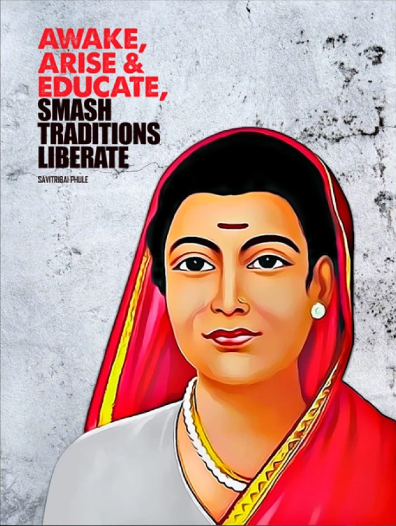Current :
Every year on 3rd January, India is celebrating the birth anniversary of the country’s first woman teacher, Savitribai Phule.
About Savitribai Phule
She was born on January 3, 1831, in a little hamlet called Naigaon which was located in the Satara District of Maharashtra.
She hailed from the Mali community.
- Considered as one of the marginalised communities in India, the Malis were traditionally engaged in gardening.
She got married at a very tender age.
Along with her husband Jyotiba Phule, Savitribai is said to be the pioneer of the women’s rights movement in India.
She is known for her work as a social worker, poet, and teacher.

Contribution:
Besides championing women’s empowerment and education, she also contributed a lot to the emancipation of people from Dalit or untouchable castes.
Together with her husband, she established the first school for women in 1848.
In the 1850s, the dynamic duo also started earnest attempts to empower the Dalit community.
- They founded the Satyashodhak Samaj, a social reform organisation.
They launched two educational trusts:
- The Native Male School, Pune, and
- The Society for Promoting the Education of Mahar, Mangs that worked towards the upliftment of oppressed classes.
In 1863, Jyotirao and Savitribai established Balhatya Pratibandhak Griha, India’s first home working towards prohibiting female infanticide and helping pregnant Brahmin widows and rape victims.
Savitribai was also a talented poet. She published Kavya Phule in 1854 and Bavan Kashi Subodh Ratnakar in 1892, and also a poem entitled ‘Go, Get Education’.
She breathed her last on 10th March 1897. She contracted bubonic plague while trying to save a patient from she same and succumbed to it eventually.

